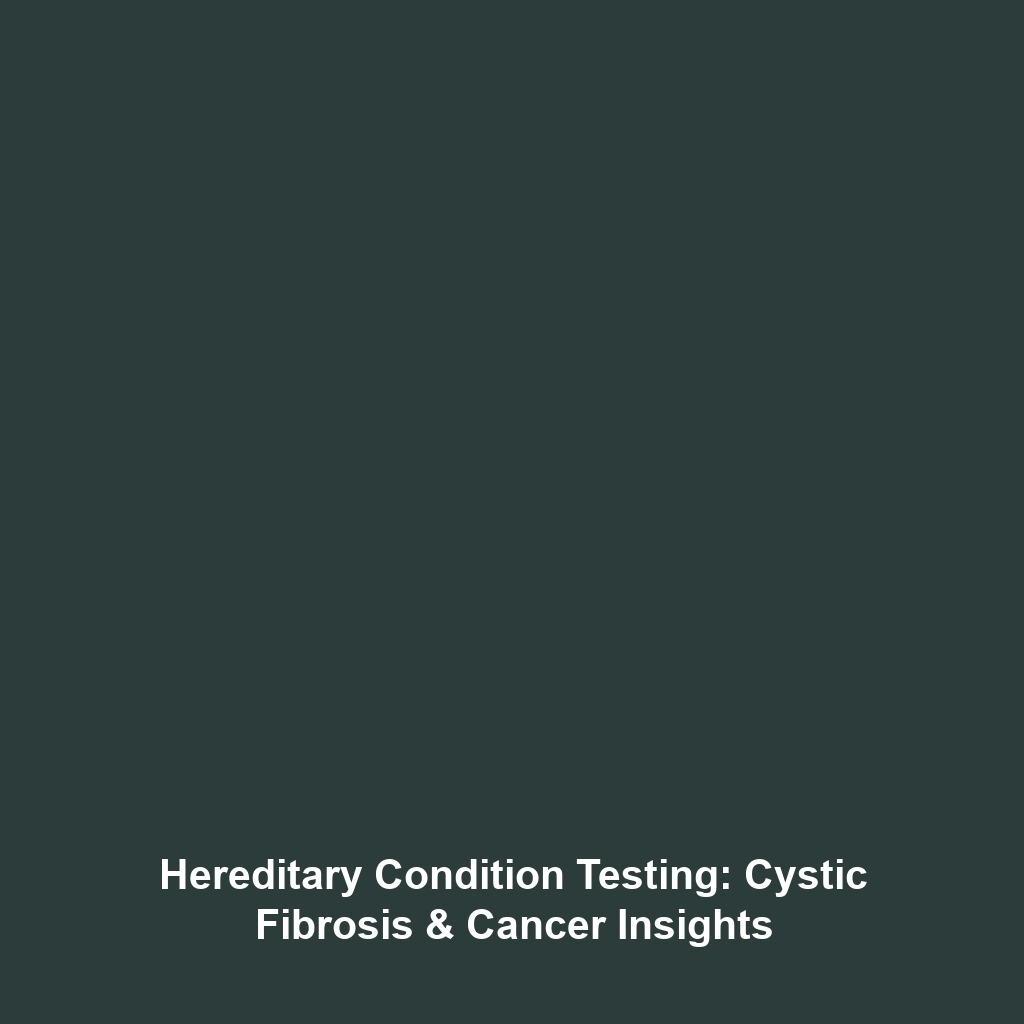Testing for Hereditary Conditions and the Human Genome Project
Introduction
The Human Genome Project (HGP), completed in 2003, has revolutionized our understanding of genetics and paved the way for advanced medical diagnostics. One of the most significant applications of the HGP is the testing for hereditary conditions, which includes diseases such as cystic fibrosis, Huntington’s disease, and specific cancers. Understanding these genetic disorders is crucial, as they not only impact individuals but also have profound implications for families and communities. This article explores how such testing exemplifies the benefits of the Human Genome Project in advancing personalized medicine and improving patient outcomes.
Key Concepts
Testing for hereditary conditions involves analyzing an individual’s DNA to identify genetic mutations that may predispose them to various diseases. The following key concepts highlight how these tests are conducted and their importance:
1. Genetic Mutations
Genetic mutations are changes in the DNA sequence that can lead to hereditary conditions. For example, cystic fibrosis is caused by a mutation in the CFTR gene, while Huntington’s disease stems from alterations in the HTT gene.
2. Carrier Testing
Carrier testing identifies individuals who carry a copy of a mutated gene without showing symptoms of the disease. This is particularly valuable for cystic fibrosis, as carriers can pass on the mutation to descendants.
3. Predictive Testing
Predictive testing allows individuals with a family history of genetic disorders like Huntington’s disease to understand their risk for developing the condition.
Applications and Real-World Uses
Testing for hereditary conditions has numerous practical applications, particularly in the realm of healthcare. The following examples illuminate these uses:
- Cystic Fibrosis Testing: Routine screening during newborn check-ups can help in early intervention strategies.
- Huntington’s Disease Testing: Individuals can make informed decisions about family planning based on their test results.
- Cancer Genetic Testing: Testing for BRCA mutations can guide preventive measures for breast and ovarian cancers among high-risk individuals.
Current Challenges
Despite advancements, several challenges persist in the realm of hereditary condition testing:
- Ethical Concerns: Issues surrounding genetic privacy and discrimination in employment or insurance.
- Access to Testing: Disparity in healthcare access may limit testing for underprivileged populations.
- Interpretation of Results: The complexities of genetic data can lead to misinterpretation, causing unnecessary anxiety or false reassurance.
Future Research and Innovations
Ongoing research into genetic testing is set to transform the field, particularly in the following areas:
- Next-Generation Sequencing (NGS): Advances in NGS technologies are enabling faster and more cost-effective testing.
- CRISPR Technologies: Innovations in gene editing may provide new avenues for correcting mutations associated with hereditary diseases.
- Pharmacogenomics: Research linking genetic profiles to drug responses could lead to more personalized treatment plans.
Conclusion
Testing for hereditary conditions like cystic fibrosis, Huntington’s disease, and certain cancers exemplifies the profound impact of the Human Genome Project on modern medicine. As genetic testing continues to evolve and integrate into healthcare practices, it will enhance our ability to prevent and manage hereditary diseases effectively. To learn more about genetic testing and its implications, explore our related articles on Cystic Fibrosis and Huntington’s Disease.
